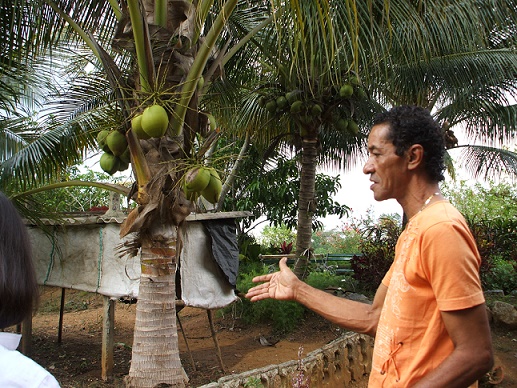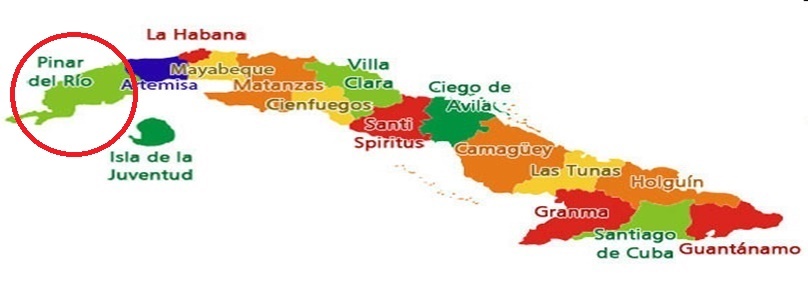As part of the social economy in higher education project we are visiting the universities of several countries in Latin America. Our first visit has been to Pinar del Río University in Cuba. Thanks to the Dean of the Faculty of Social Sciences and Humanities, Juan Silvio Cabrera, we had the opportunity to visit various community projects. One of these is Pelegrín’s Patio, a space which encourages and promotes artistic expression amongst all sections of the community. It is clearly a space for learning artistic skills and creative expression as well as promoting the value of community.
The Patio is an informal community space. It receives no external funds. Its founder, Mario Pelegrín, has three ‘lines’ which he pursues:
environmental, which aims to promote love of the environment and education about its protection and preservation;
socio-cultural, to preserve traditions, promote culture and stimulate the participation of creative talent; and
productive, the production of fruit and vegetables and the provision of a café, which provides income and enables the sustainability of the project.
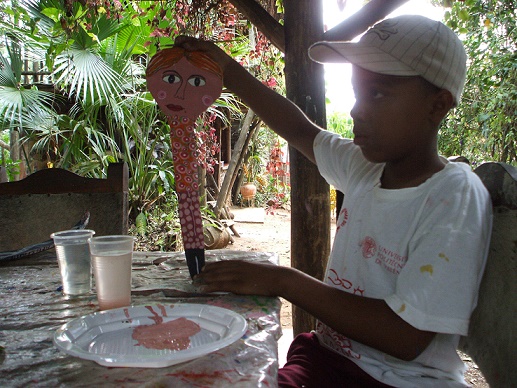
It is an example of the promotion of social capital through providing opportunity for community engagement and mutual education.
Margaret Meredith and Catalina Quiroz
(Map below by permission of Carlos C. Torres)
Daima Cardoso Valdés, journalist and academic at the University of Pinar del Río has kindly given us the following article about Pelegrín’s Patio.
A patio open to hope
By Daima Cardoso Valdés
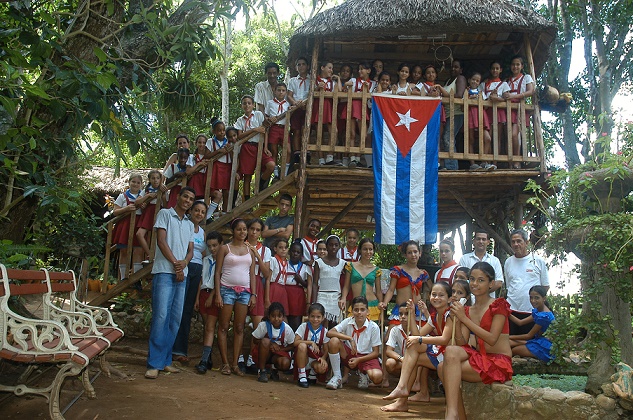 Today Cuba is experiencing a massification of its culture to all regions of the country, without making distinctions about particular local cultural needs. This is prompting Cubans to reclaim their humanity and create the means to address their current problems.
Today Cuba is experiencing a massification of its culture to all regions of the country, without making distinctions about particular local cultural needs. This is prompting Cubans to reclaim their humanity and create the means to address their current problems.
Cuba, a poor country under a US blockade, strives to make visible its social projects which prioritize community and culture, because it is within community that we realise our spirituality.
In Pinar del Rio various projects exist, generally in the areas in which access is difficult. These projects give the possibility of recreation and contact with the cultural heritage of the region. Puerta de Golpe has around 6000 inhabitants within its immediate area. These people are in need of cultural and community projects.
With this in mind an artist from the community, Mario Pelegrín Pozo, opened up his home and gave his free time to support a project, Pelegrín’s Patio, in order to meet the social and recreational interests of his neighbours.
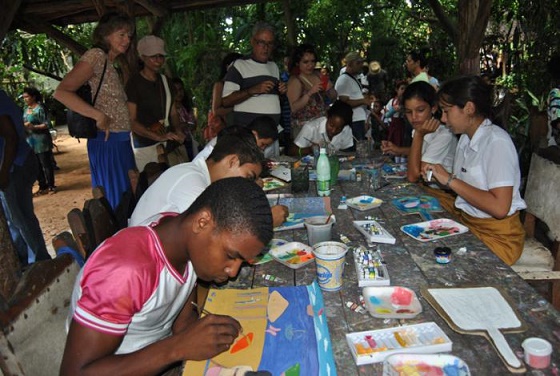
The greatest possible number of artistic expressions find their space in this place, which is a tropical paradise touched by the magic of art. Pelegrín’s Patio will pass into the history of the region as a new option for recreation, instruction and aesthetic education.
The Patio has stimulated great interest amongst the local population and foreign visitors. It attempts to revitalise popular and traditional culture, and it is a way of saving the Revolution and its history. It is very significant that it promotes artistic and cultural values which exist in the community as well as enabling new talents to be discovered.
The direct beneficiaries of the project are 75 fans of arts, handicrafts, painting and ceramics, including women in their later years who enjoy knitting. They get together with children and students from the Basilio Caraballo polytechnic and devote time to creating ceramics and work with papier mache.
They include 23 folk music enthusiasts and poets. They join 2 historians and community researchers and a literary workshop of 15 members. There is also a dance club, a cinema debating club, alongside a circle of people interested in traditional sweets.
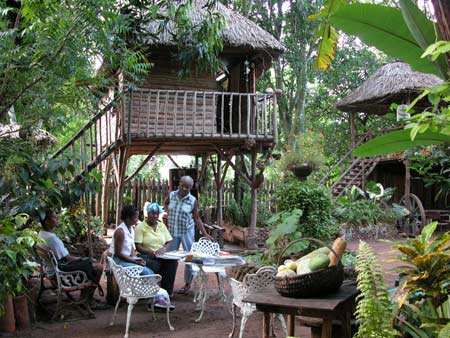
This project addresses all groups and sectors in an egalitarian way and represents a laboratory of innovation at the service of culture. Its methodology could be replicated in other areas of the region. It’s worth remembering that everything done in communities today with the purpose of promoting the well-being its people, and to promote expressions of culture, are important steps towards a better world. Pelegrín has demonstrated this with his project. Congratulations!
